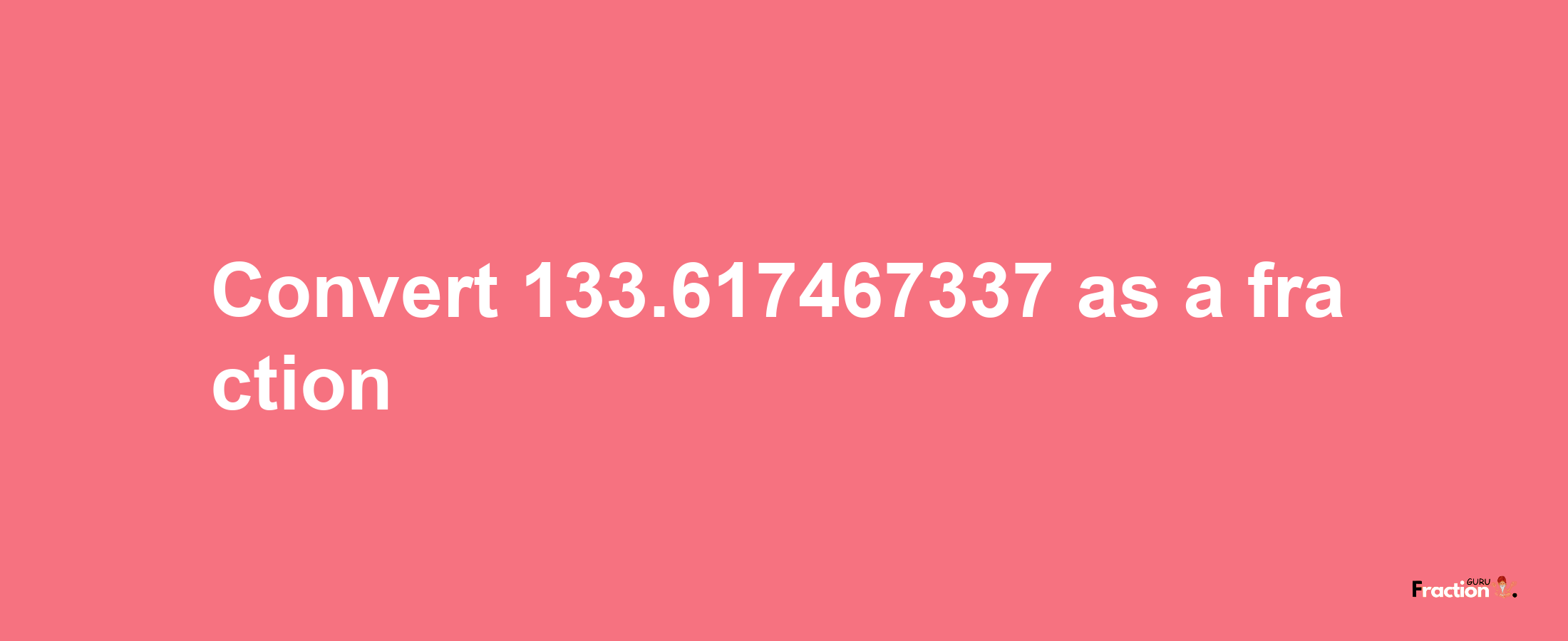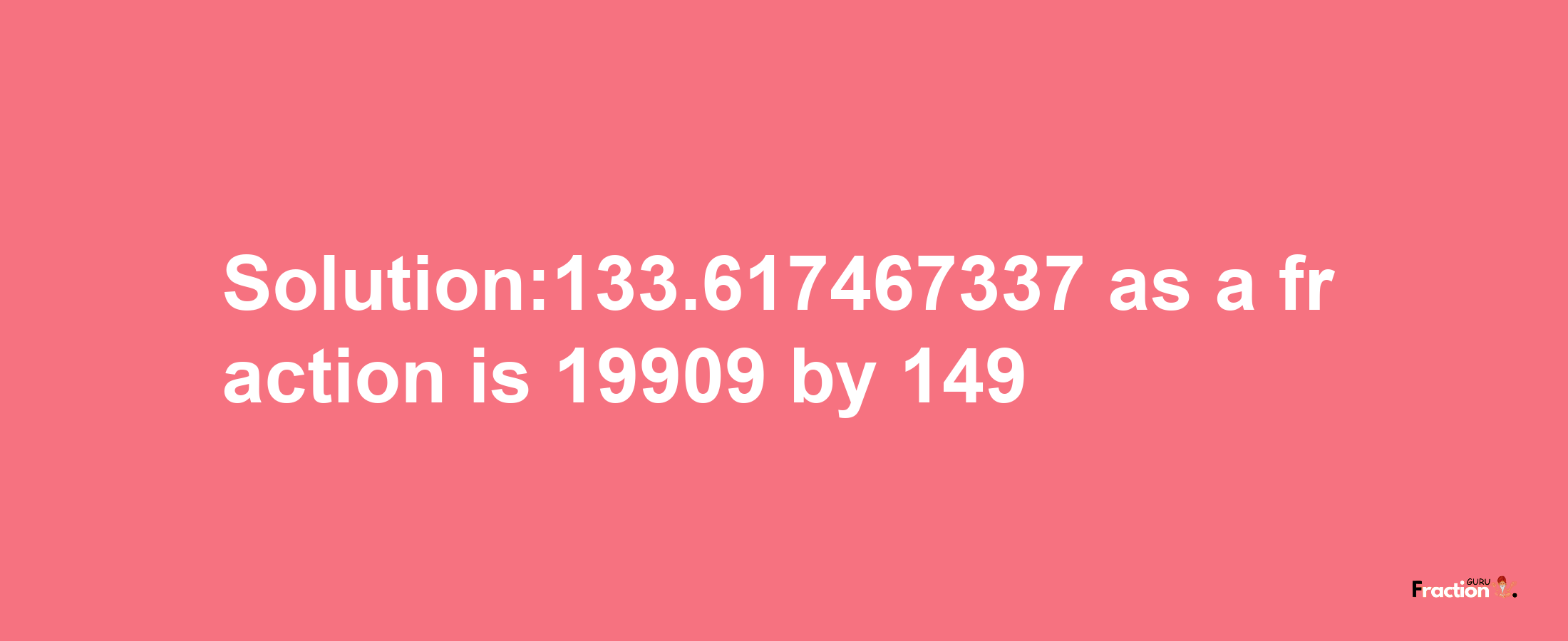Step 1:
The first step to converting 133.617467337 to a fraction is to re-write 133.617467337 in the form p/q where p and q are both positive integers. To start with, 133.617467337 can be written as simply 133.617467337/1 to technically be written as a fraction.
Step 2:
Next, we will count the number of fractional digits after the decimal point in 133.617467337, which in this case is 9. For however many digits after the decimal point there are, we will multiply the numerator and denominator of 133.617467337/1 each by 10 to the power of that many digits. So, in this case, we will multiply the numerator and denominator of 133.617467337/1 each by 1000000000:
Step 3:
Now the last step is to simplify the fraction (if possible) by finding similar factors and cancelling them out, which leads to the following answer for 133.617467337 as a fraction:
19909/149 / 1


